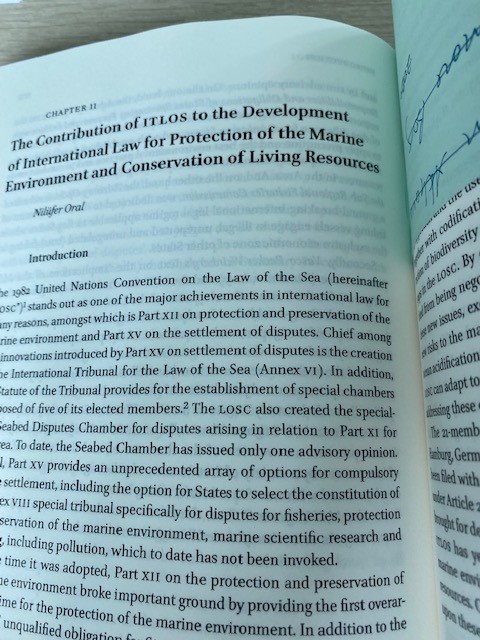
Chapter 11 of Case-Law and the Development of International Law: The Contribution of ITLOS to the Development of International Law for Protection of the Marine Environment and Conservation of Living Resources by Dr Nilüfer Oral
Abstract
The United Nations Convention on the Law of the Sea (losc) introduced many important innovations, such as Part xii on the protection of the marine environment, Part xv on compulsory dispute settlement measures and also the establishment of the International Tribunal for the Law of the Sea. The Tribunal started to work 1 October 1996 and during this has decided 27 cases. The jurisprudence of the Tribunal in this aspect has been mostly a mixture requests for provisional measures, prompt release and advisory opinions. However, while limited in their scope, these have served to advance the interpretation of the Convention in relation to important obligations and principles such as, the duty to cooperate under international law in relation to the protection of the environment; the relationship between obligations to conserve natural resources and navigational rights; due diligence obligations of States in relation to private operators in the Area, as well as the obligation of flag States and coastal States in relation to the phenomena of illegal, unreported and unregulated fishing activities in the exclusive economic zone of another State. However, there has only been one case on the merits that has addressed protection of the marine environment. And yet, a specialized chamber for environmental disputes was established under Article 13(3) of its statute, which has never been used. Many important issues concerning protection of the marine environment and conservation of natural resources have emerged over the years, including new ones related to climate change and marine plastics. It is inevitable that more disputes will arise in these areas concerning the rights and responsibilities of States under the Convention and international law, and the Tribunal is poised to play an important role in advancing the conservation interests of the global community through its interpretive powers. This chapter will examine the past contribution of the Tribunal to the conservation and preservation of the marine environment and, in particular, in relation to implementing Part xii as well as its potential role.

